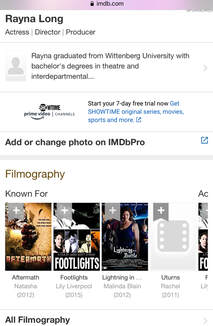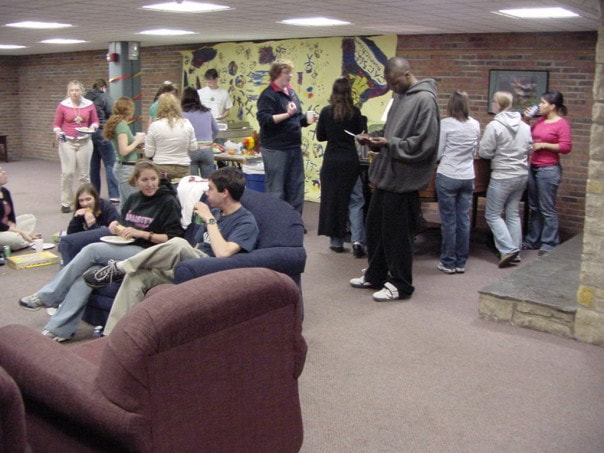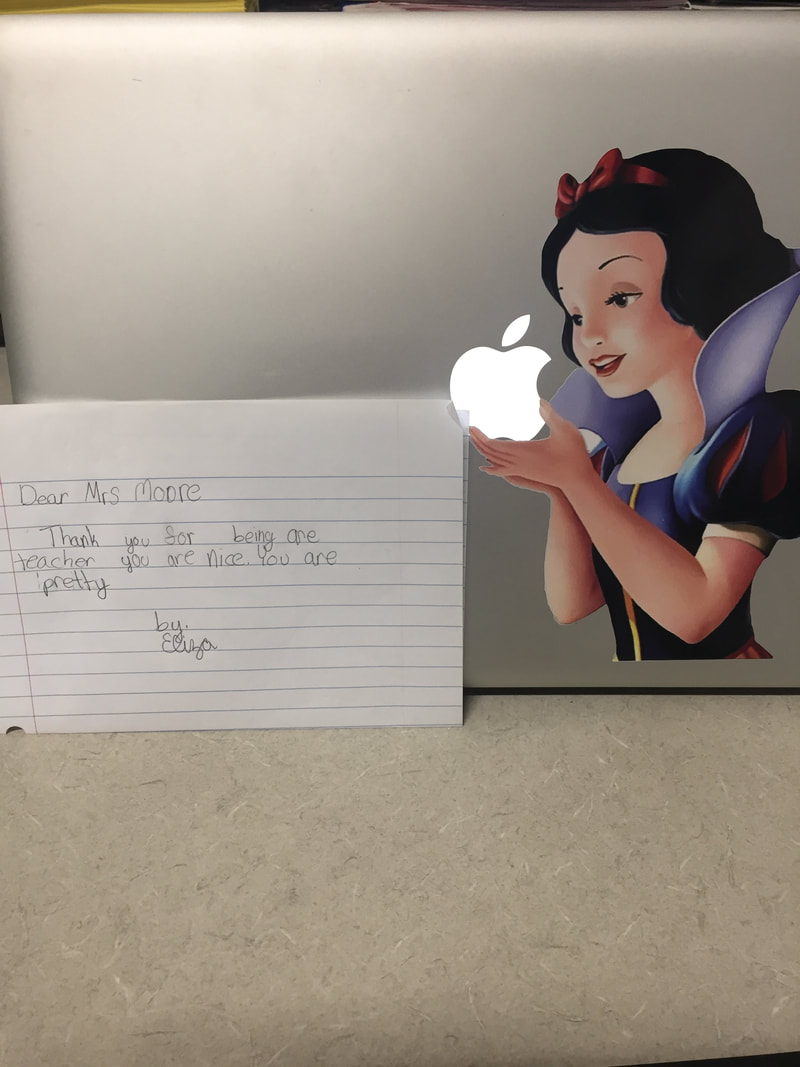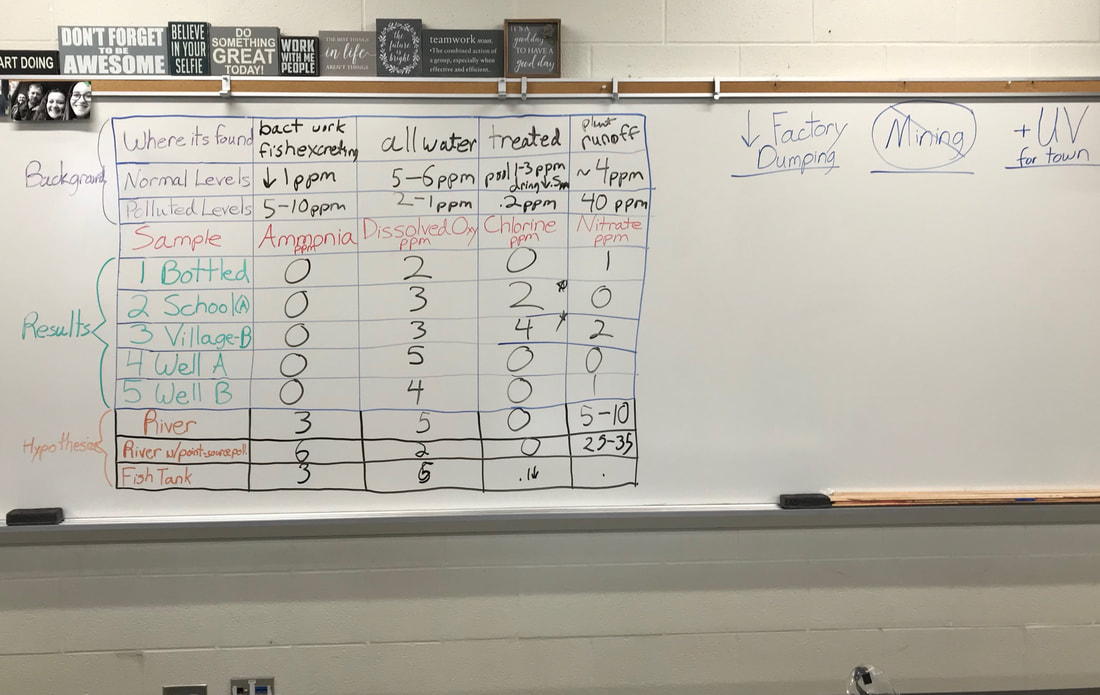 No, I have never lived in L.A., New York, or even Chicago. No, I have never had an agent. No, I have never been part of an actor's union. Have I been paid to act? YES!!! There are many variables that go into performing positions and many people have different end goals. I have had the privilege of performing live, in films, and in commercials. Did they all pay a living wage? No, not all of them, but there are definitely opportunities for people who want them. Now, I write about opportunities and experiences that I have had. Your path may not be the same. First, you need to decide what an acting position is to you. If you have read my "Best Job Ever" post, you have heard about a position where I was able to perform for a three month contract in relation to a promotional position. I have also had an opportunity to learn a script and perform shows live that most people would label a sales position. Most acting work is one gig at a time whether it is the length of filming a movie or a fun job I had working on a series of commercials. One position I particularly enjoy is working as a standardized patient where I act like I have certain conditions and follow a scenario(improv experience helps here) to help train a variety of students in the medical field. There are also traditional acting positions in stage productions, tv, film, or even web series. Next, you need to figure out how far you are willing to travel and what compensation you will require. This is totally up to you if you are freelancing and have no union or agent, so decide what you want. You may also want to consider what experience you have. You may be willing to work a few gigs for copy, credit, and concessions if you are working to build a reel. Then, practice, practice, practice! Acting classes, improv classes, memory work - you need to build up your skills and be prepared to learn quickly and perform. This work can help you expand your abilities. You never know when you will need a British or Irish accent...(Yes, I have performed with both). Any skills that you can add to your resume could help you be cast, and don't be tempted to add things you've never done unless you are prepared to master them quite quickly...(Don't do it!) Now, it is time to look for positions. I keep profiles on a variety of job sites that help me submit for jobs and get booked. Yes, you need a headshot and a resume for this. Some of these sites include IMDB, Backstage, and even CraigsList. I cannot underestimate the importance of safety here. Make sure you have back up. Make sure people know where you are, ask for portfolios, do your research to make sure you are not put in a dangerous position! Another great place to look for positions, if you are building a reel, if to check out local colleges and look for student film postings. There are also a plethora of acting groups on Facebook that you can check into depending on your region. Most importantly, never underestimate the power or networking! I can't tell you how many positions I was awarded because I knew someone who knew someone. Finally, be ready! I have had last minute gigs come up, like same day last minute. I have needed to have a monologue in my back pocket. The more flexible you are and the more ready to perform, the more you may have the opportunity to book. Enjoy your hunt!
0 Comments
 I spent several years considering my options to become a teacher. Some things that concerned me were making sure I still had time for my family, being sure we were in a good place financially (since you cannot hold a full-time position while student teaching), getting the knowledge and experience that would make me a great educator, and making sure I would be able to pay for this new adventure. Western Governor's University was something that I had researched as a licensure path for a long time. Their courses are self-paced and when you pay for a term, you can complete as many classes as you want in that six month period. Their pricing is also very reasonable and there are no textbooks to buy. I was even able to apply for a TEACH Grant for my course of study. They also make sure that graduates of their program will be eligible for a teaching license in their state. This can be a little tricky because WGU is based in Utah, but the make absolutely sure that you will able to get a license. Due to this fact, they only offer certain licensures for each state, so do your research. I earned two Master's with WGU. The first earned me an initial license in teaching Life Science for grades seven through twelve. With observation and student teaching requirement, this took me three terms. The second, let me add Integrated Mathematics for the same grade band. Student teaching experience is greatly abbreviated for already licensed teachers and I was able to complete my second degree in only six months, or one term. Is WGU right for everyone? Absolutely not. WGU wants you to succeed and assigns a mentor to help keep you accountable. There are also course instructors that reach out to help. Student success resources have a wide range, but if you are not self-motivated, it is easy to not answer calls and emails and let that six months that you are paying for tick away with no progress. You have to want it and be willing to put in the work. This could mean asking for help watching a little one so you can get a test completed, working late after work, or sneaking studies in during breaks. It is doable, but you have to make the commitment to yourself that you will get it done. Again, you are not alone. Your mentor will help you come up with short and long term goals and instructors will support you academically, but you must do the work. To get through your courses, there are two types of evaluations, or tasks, you may have to complete: objective assessments, performance assessments, or a combination of the two. Objective assessments are like a traditional multiple choice test. Something I love about these assessments is that each has a pretest that you can take and it will help you find what specific areas you need to study. I always liked to take this once, go over questions and areas I missed, then retake the practice test before taking on the real thing. Don't forget, this is a virtual program, so when you are ready to take your assessment, just schedule with the online proctor service, set up your webcam, and complete your assessment in the comfort of your own home. Another great aspect of this program is that these "tests" are graded immediately, no waiting to find out if you passed. Performance assessments, on the other hand, can encompass a wide variety of written work. You could be submitting observation hours, writing reflection essays, creating lesson plans, or answering a variety of questions. These are completely open book, just be sure to properly cite any sources you use. These do take a little longer to receive feedback because an evaluator will go over the rubric that you are provided when you read the assignment and they will give personalized feedback on the task. Currently, WGU's goal is to get these back to you in 72 hours. If there are any parts that you did not pass right away, you can just fix that area and resubmit the assignment. Questions on why you missed something? This is a great time to reach out to your course instructor for assistance. This is just a brief synopsis about some of WGU's benefits and how completing a course really works. If you are interested in furthering your education in a variety of subjects (information technology, nursing, business, education, or more), check out wgu.edu. Make sure you get the $65 off application voucher, so you can apply for free. Have your questions ready, because they will contact you ASAP to try to get you all the info you need to find the program that fits your needs. Happy learning! As you can see, I've had a little experience in many different fields. There are reasons that I have not continued in many. Sometimes the position was no longer a viable option because I chose to have a family. This was the case with touring for both theatrical and promotional purposes. There were times that I loved my positions, but the contracts ended. Again this is a problem with working long term promotions, theatrical work, and even some educational positions. If the position is discontinued, you will just have to find another. Other times I moved on for other reasons. I left banking to pursue my education in education as well as spend more time at home with my then nursing baby. The position I had working at Target ended because I returned to college for my senior year.
There is one position that I walked away from and never looked back. What was it? Telemarketing. That's right for one and one-half days I trained and worked making calls for a charity to businesses. It was for a good cause and it was kind of like acting. I mean there was a script, right? It just was not for me. To be perfectly frank, during my calls on my second morning, a gentlemen started yelling at me for calling and asking how I had gotten his number and I had to be rescued by the floor supervisor. I was in tears. They asked if I wanted to take the rest of the day off and I did. The next day, I called and formally quit the position. I don't like to give up on things and I definitely don't recommend quitting anything, but I knew no amount of money was worth continuing in a position that would make me miserable. You know what? It all worked out. A few days later, I was offered a completely different position. It was one that had some benefits, I excelled in, learned a lot doing, and, most importantly, I enjoyed. Sometimes the best thing you can do for yourself is know when your happiness and your sanity is worth more than a position. Know what you are worth. Happy job hunting! There are plenty of college comedies that poke fun at the floor R.A. They are portrayed as always ruining the fun and perhaps even being a bit of a tattletale. If this is true, why would anyone ever do it? Let's explore what an R.A., or a Resident Assistant, does and why it might be a great opportunity.
What is an R.A.? In college residence halls, an R.A. is an upperclass student that lives on the floor and has a variety of responsibilities. While some may view this position as an annoyance, their goal is really to create a safe community on the floor. This can be done through a variety of ways some of which may be required by your school. As always, I know that each school is a little different and job requirements may fluctuate, however, I will speak about my experience in this position. In my role, we had specific weekly, monthly, and yearly requirements. Every year, we would assist in opening and closing of the building for the school year and all breaks. We would also provide door tags for each resident at the beginning of the year. Monthly, we were required to put up at least one bulletin board and conduct at least one program. We also would attend a full staff inservice. Weekly, we would be assigned duty nights where we would do rounds in the build every couple hours to make sure rules were being followed and everyone was being safe and we had a few office hours scheduled during the day to help with visibility and administrative tasks. We also had one-on-one and staff meetings with our supervisor each week. One of the most important parts of this position is to be available to assist your students. Those living in the halls can have any variety of concerns and you are a frontline resource to help them find the best way to get their answers. Just like the title says, you are there to assist everyone in having a great year! Why should you consider becoming an R.A.? First, R.A. looks great on a resume. It shows that not only did you complete your own college courses, but you were able to assisted others. You have a track record of being a responsible mentor. You have probably also mediated your fair share of roommate conflicts and developed excellent communication skills. Next, the position can be quite lucrative. Compensation for this work varies from school to school. During my time working as an R.A., I received a double room to myself and a small monthly stipend. Just the savings on the room alone can be worth the work. Having that room to yourself is a great added bonus! Finally, I really enjoyed the aspects of being an R.A. Creating fun and educational programs for the residents of my floor to enjoy was one of my favorite pastimes. I loved to plan the events and create invitations and marketing for them. It was always exciting to see my students building bonds and friendships throughout the year. Some of my residents were even inspired to become R.A.s themselves. I was able to head up the committee to recruit new R.A.s each year. I loved the quiet time in the buildings during openings and closings. The best part, however, was bonding with fellow staff members. Are you attending college and looking for a great experience? Reach out to your R.A. to find out more!  Are you thinking of teaching full-time? Many individuals find this to be a rewarding position and spend their entire working lives in this field. Schools are everywhere, even online, so there are an abundance of opportunities. There are several key points to consider, however, before pursuing this career path. For the best information, check out your state's Department of Education website. I will discuss my experience which may not be the same for all individuals. Who do you want to teach? Depending on the licensure that you are seeking, most are divided by grade level, content, or both. There is a huge range of licenses available and each has a different preparation process and a different amount of available opportunities. It is especially important to consider which positions are in high demand if you are committed to a certain geographical region. For instance, I qualify for a supplemental licensure in teaching drama, but, sadly, there are no positions that require that license in my area. Are you ready to put in the hours? Many take one look at teaching and only see the "summers off." Rarely do people account for all the hours that teachers actually put in. Day to day hours also include lesson planning, grading, and administrative duties in addition to actual teaching time. Educators are also asked to take on tasks like after-school detention, lunch duties, or other supervisory assignments. They could also be supporting students through extracurricular activities; including, sports, arts, class advisors, or any number of other clubs. Finally, just because you have your teaching license doesn't mean that you are done learning. Teachers must constantly be taking classes and earning continuing education credits to be able to keep their license current. What is the best way to earn your license? In my state, there are several options to earn your teaching license depending on if you are approaching the field as a first career or changing fields. If you are just starting out, most four year colleges offer an education degree. You do need to check to see which specific licenses they support. This can change over time. When I was in college getting my bachelor's, my school offered a program for those who were pursuing a license to teach drama or theatre. Now, that university no longer supports that licensure path, though they still help students get licenses in early education or those who hope to teach certain subjects in high school. This is another reason that it is important to decide what and who you want to teach. Not every school offers every license. There are a few different opportunities for those changing careers to earn a teaching license. Going back to get an education bachelors is always an option. If you already have a B.A. or B.S. or B.F.A, you may be able to apply for alternative licensure or gain licensure through a post-bachelor or masters program. The alternative program is offered through the state and is a relatively low cost option to learn the educational theories needed to teach specific subjects. These may include, but are not limited to: high school math, social studies, language arts, or science. All of this is based on what credits you have earned with your initial degree. Post-bach and master's programs are also excellent options and can help you start out at an increased salary, depending on your school district's contract. Remember, no matter what path you take there will be a student teaching component. This is several weeks of full-time teaching. It is time-consuming and includes having your teaching evaluated and often a large written component submitted. Know that if you are working another job, you will probably not be able to continue it at this time. Be sure to explore all your options before deciding the best route for you. Certain grants or loan forgiveness opportunities are also available for those who are licensed in a field of high need and work in a low income district. Beware, the schools on this list fluctuate from year to year (https://studentaid.gov/tcli/). Do your research. My path, as you may have noticed, is a little different from most. I had B.A.s in Theatre and Interdepartmental Science and a decade of varied work experience when I decided to pursue teaching. At that time, I thought the best option was to go through Western Governors University's M.A. Teaching, Science Education (Secondary) program. (Check out my graduation speech!) This allowed me an initial licensure in Life Science for grades 7-12. I, then, took a few classes with the University of Findlay to add Integrated Science to my license. Finally, when the pandemic hit, I took the time to make myself as marketable as possible by completing a second masters with WGU. This time I added Integrated Mathematics to my credentials.
There are a multitude of opportunities out there! Good luck learners! Most everyone has experienced having a substitute teacher, but what do they actually do and what makes a good one? One of the worst situations for both students and teachers happens when the sub doesn't know what is going on, but how do you combat that? While substitute teaching can seem like a glorified babysitting position, to do it well you need to be prepared and ask the right questions. As always, this blog is based on my real experiences in this position. First, know what you are teaching. When you get a call, you will be asked if you are available on a certain date, if it is a full or half day, and, usually, you will be told the grade level and sometimes the subject that you are being requested for. As one colleague wisely pointed out, "If you are subbing for a gym teacher, dress like a gym teacher." Keep in mind, if you are working with younger students, you need to be sure to be able to crouch down to help with assignments, take on recess duty, or be prepared to complete a messy art project. Likewise, if you will be in a lab make sure to wear closed-toed shoes and long pants. Layers are also helpful to adjust to room temperatures which can fluctuate throughout a building. Next, get all the information that you can. When you arrive at the office to check in for your assignment, you will usually get a name tag, directions to your room, and, possibly, keys. Check to see if there are any forms to fill out (like a sub log) and if it should be left for the teacher or brought to the office at the end of the day (I always make sure to leave a note for the teacher with specific details about absences and behavior for each class period.). This is a good time to ask about cellphone policy. Sometimes it is teacher specific, but it is good to have a general idea, because this is one of the first things students will try to get away with. Also find out if there is a substitute log in for the school computers. Another great thing to ask is if there are any special events in the building that day. After checking in, head to your room. Hopefully, the regular teacher has left you specific notes about the day. Take this time to read through the day, locate your teaching resources, find out if you switch rooms throughout the day or have extra duties (before or after school, or at lunch), and get organized for the morning. Morning tasks generally include reporting attendance, taking a lunch count, and showing the announcements. Often, if you cannot do one of these things, there will be a note about where to send students or a student that can be put in charge of the task. If there are no classroom instructions, check with the office or neighboring teachers. In a worse case scenario, you will run a study hall all day. Write your name on the board and be prepared for constant monitoring. Finally, take a few moments to check out the posted emergency procedures. You never know if there will be a last minute tornado drill or evacuation. Throughout the day, try to move through the room as much as possible. Students know they are less likely to get away with misbehaviors if you are not sitting like a lump in the corner. Also be consistent. If there are no specific instructions, be upfront with your students and let them know what you expect. Can they work with a partner? What is an acceptable noise level? What activities can they do if they are done with their assignment? If the classroom teacher has left a way to reward their students, tell them exactly what you expect to be able to reward them. Unless otherwise stated, I always limit people leaving the classroom for bathroom breaks or locker runs to one guy and one gal and I keep an eye on the clock to let the teacher know if they were gone for an extended period. Normally, a substitute will have two breaks throughout the day. One is a plan period. This is a great time to run to the bathroom (You should not leave the room while you are supervising students.), check your phone for messages (You should not have your phone out while supervising students.), and relax (Bring a book.). The other is a lunch break. Depending on your school, you may be able to head to the cafeteria and pay cash for lunch. Some schools require you to have an account set up to purchase lunches and may not set one up for the casual sub. This is something you might inquire about with the office. I always found it easiest to simply bring something cold for lunch. Most schools will invite you to use the teachers lounge, but lunch periods are usually very short and taking time to find the lounge and participate in a microwaving cue will eat into your break. Remember, safety is the most important thing. You want to get all your students through their day safely. Follow your teacher's instructions as closely as possible. If in doubt, call the office for backup. Good luck!
 Were you excited or disappointed to see a substitute teacher when you were in school? Did you think you were going to get away with things, have less work, or be bored by busy work? Maybe you had no idea what to expect because it was a random person that you'd never seen before. Perhaps you were thrilled to see that someone you knew was taking charge for the day. All this may have gone through your head, but did you ever consider becoming a sub (Yes, the teacher, not the sandwich.)? Substitute teaching has many pros and cons. Depending on your situation (Eh hmm, you moms trying to have it all), it could be a great option to help support your family. Let's take a deeper dive.
Think you have what it takes to sub? Check out your state's Department of Education and contact your local school districts. Schools are in need of great subs and often will help you navigate the process. Make sure schools know you are available, be prepared to walk into anything from seven fully prepped teaching periods to a day of study halls(bring a book), and if you are willing to sub for P.E., be sure to have a whistle!
|
AuthorRayna Moore - ArchivesCategories
All
© 2021 by Rayna Moore
|





 RSS Feed
RSS Feed

